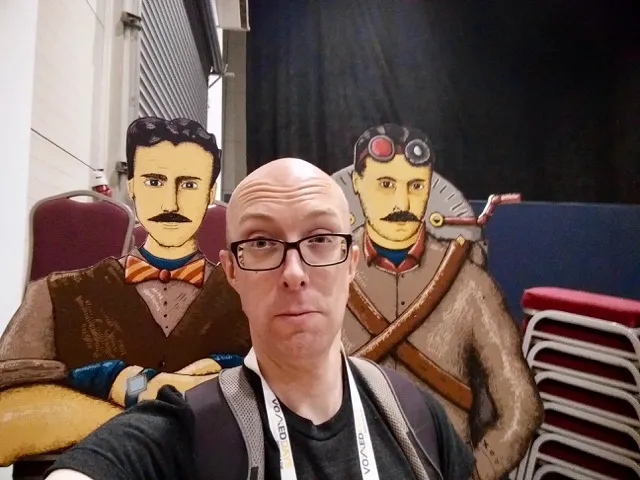Went to a most inspiring talk last night entitled "Holy War, Religion and Violence" given by Keith Ward at Gresham College. I hope to get a copy of the transcript to post here but I learnt a lot and had a lot of thoughts implanted in my head including : <br>The Byzantine Empire was a remnant of the Roman Empire (which I knew) but far from being the glorious, free civilised image it liked to portray, the empire was in fact a dictatorship and when the Turks (Muslims) attacked they were seen by many as liberators and welcomed.The supposed 'Dark Ages' were only really in the West; the Muslim world was full of advances and enlightenment at the time.<br><br>The Arab world continued and kept alive the Greek traditions of philosophy and discovery, presumably from their Byzantine conquest, the west relearnt them from the Arab world.<br><br>When the West had caught up after the Dark Ages it commenced a 'colonisation' (Christianisation?) of most of the world, the Europeans were seen as Barbarians by the Muslim world, but we ignored most of that and just drained and destroyed them, turning them into the 'Third World' they are now.<br><br>The Qur'an is a set of principles or rules; there are no 'Clergy' in Islam, but a set of 'lawyers' if you like, who interpret the rules and pass those interpretations on to local followers, these 'rules' were written a long time ago for a nomadic society, so their interpretations have changed over the years. There is no supreme head of the Islamic Faith (The last Kalif was deposed in the 14th Century by Muslims) and there is only one Islamic State (Iran), compare that to Christianity. Mohammed was a political leader, so has influence on Politics, but Christianity was and still is tied in with politics.Most phrases taken from the Qur'an and used against it are taken out of context or presented in an edited form. The same applies with extremists; they even use elements of Lenin's teachings on Violent Revolution being the only solution against what they don't consider 'real' Islam, i.e. Democratic politicians in Islamic Countries.<br><br>Islam is an inclusive religion, all prophets from all faiths are considered valid, as are all paths to Heaven, however Muslims do consider Islam the best route, two quotes that sum this attitude nicely :








